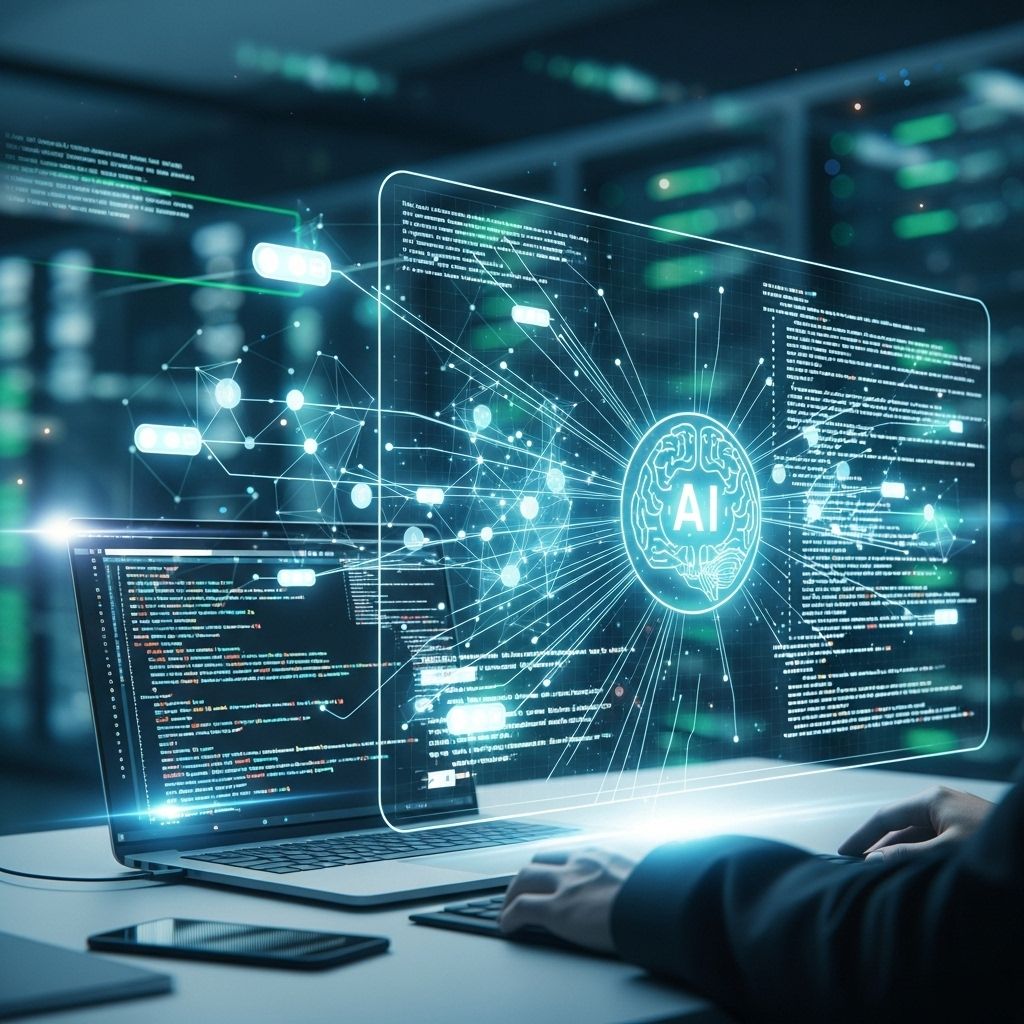In the rapidly evolving landscape of software development, the need for speed and efficiency has never been more critical. As coding practices become increasingly complex, developers are continually seeking ways to enhance their productivity and streamline their workflows. Artificial Intelligence (AI) has emerged as a formidable ally in this quest, offering a plethora of optimization techniques that can significantly accelerate coding processes. This article delves into various AI optimization strategies that can help developers unlock faster coding while maintaining high-quality outcomes.
Understanding AI in Software Development
AI encompasses a range of technologies that enable machines to mimic human intelligence. In the context of software development, AI leverages machine learning (ML), natural language processing (NLP), and data analytics to facilitate coding. Here are some key areas where AI is making an impact:
- Code Generation: Automatic generation of code snippets based on developer input.
- Code Review: AI tools analyze codebase for potential errors and suggest improvements.
- Predictive Analytics: AI predicts future development trends and recommends tech stacks.
Enhancing Code Quality with AI
High-quality code is essential for building robust applications. AI can assist in maintaining code quality through various mechanisms:
1. Automated Code Review Tools
Integrating AI-powered code review tools can drastically reduce the time spent on manual code checks. These tools utilize algorithms to:
- Identify potential bugs before deployment.
- Suggest performance optimizations.
- Enforce coding standards.
2. Intelligent Code Completion
Code completion tools powered by AI, such as GitHub Copilot or Tabnine, enhance the coding experience by predicting the next lines of code. This facilitates:
- Faster coding as developers can focus more on logic rather than syntax.
- Reduction of syntax errors and typos.
Streamlining Development Workflows
Efficient workflows are crucial for meeting deadlines and improving team productivity. AI offers several techniques to streamline these processes:
1. Task Automation
AI can automate repetitive tasks, freeing developers to focus on more complex problems. Common areas for automation include:
| Task | AI Tool | Benefit |
|---|---|---|
| Code Deployment | GitHub Actions | Reduces manual intervention, speeds up deployment times. |
| Testing | Selenium with AI | Automated testing to identify issues before release. |
| Documentation | DocuGen | Automatic generation of developer documentation. |
2. Enhanced Collaboration
AI can foster collaboration among development teams by integrating communication tools that utilize NLP. This leads to:
- Real-time feedback on coding practices.
- Enhanced issue tracking and resolution.
- Improved team dynamics through streamlined communication.
Leveraging Predictive Analytics
Predictive analytics can be a game-changer in project management and decision-making. By analyzing historical data, AI tools can:
1. Forecast Project Timelines
AI algorithms can predict how long tasks will take based on past performance, informing better resource allocation. Benefits include:
- More accurate project timelines.
- Reduced chances of over-promising deliverables.
2. Optimize Resource Allocation
AI can analyze individual team members’ strengths and weaknesses, allowing for smarter assignments. This not only enhances productivity but also increases job satisfaction among team members.
Integrating AI into the Development Cycle
To maximize the benefits of AI in coding, developers should consider integrating these technologies at different stages of the software development lifecycle (SDLC):
1. Planning
During the planning phase, AI can assist in gathering requirements and analyzing user feedback, helping to align development objectives with user needs.
2. Design
AI tools can provide design recommendations based on best practices and user experience data, ensuring that applications are both functional and appealing.
3. Development
Here, AI can enhance coding speed and quality through intelligent code completion and automated code reviews.
4. Testing
Automated testing frameworks powered by AI can simulate user behavior, performing extensive tests faster than manual methods.
5. Maintenance
AI can help in predicting potential issues in deployed applications, allowing for proactive maintenance strategies.
Challenges in AI Implementation
While the benefits of AI in coding are significant, there are challenges to consider:
- Learning Curve: Developers may require time to adapt to new AI tools and techniques.
- Integration Issues: Existing systems may pose challenges when incorporating AI solutions.
- Data Privacy: AI often requires substantial data, raising concerns about user privacy and data security.
The Future of AI in Coding
The future of AI in software development looks promising, with continual advancements likely to redefine how developers work. Innovations such as:
- AI-driven DevOps tools.
- Advanced machine learning algorithms for predictive coding.
- Integration of AI in low-code/no-code platforms.
These advancements will not only increase efficiency but also open doors to new possibilities in application development.
Conclusion
AI optimization techniques are reshaping the landscape of software development, empowering developers to work more efficiently and effectively. By integrating AI tools and methodologies across the coding process, teams can enhance code quality, streamline workflows, and foster collaboration. While challenges exist, the potential rewards significantly outweigh them, making AI an indispensable component of modern software development. Embracing these technologies not only accelerates coding but also paves the way for innovative solutions in the tech industry.
FAQ
What are AI optimization techniques for coding?
AI optimization techniques for coding involve using artificial intelligence algorithms to enhance code efficiency, reduce errors, and automate repetitive tasks.
How can I implement AI optimization in my coding projects?
You can implement AI optimization by integrating tools and frameworks that utilize machine learning for code analysis, suggestion, and refactoring.
What are the benefits of using AI for coding optimization?
Benefits include increased productivity, improved code quality, faster debugging, and the ability to leverage data-driven insights for better decision-making.
Are there specific AI tools recommended for coding optimization?
Yes, popular tools include GitHub Copilot, Tabnine, and Kite, which provide AI-driven code suggestions and completions.
Can AI help in reducing coding errors?
Absolutely, AI can analyze code patterns and detect potential errors before execution, significantly reducing bugs and improving overall code reliability.
Is AI optimization suitable for all programming languages?
AI optimization techniques can be applied across various programming languages, though the effectiveness may vary depending on the language and tool compatibility.



